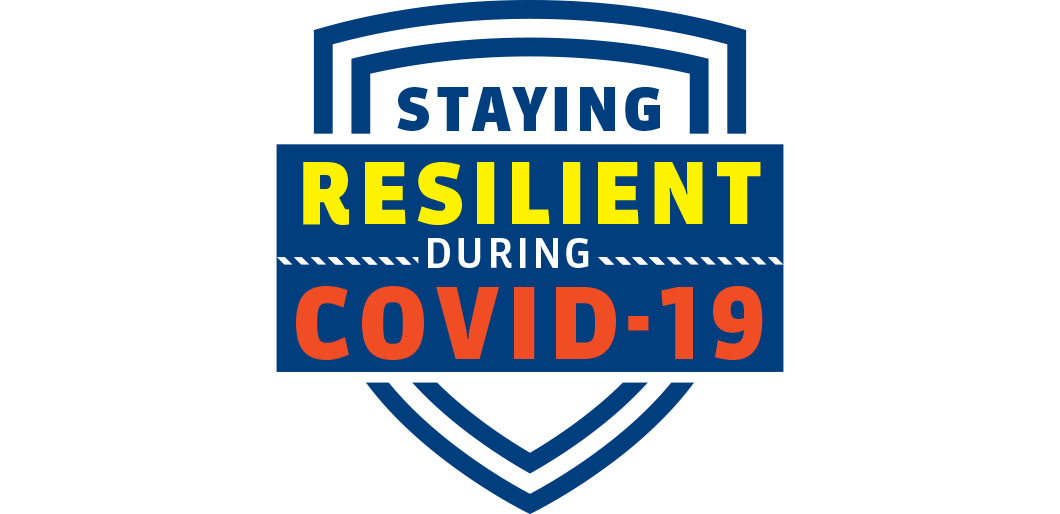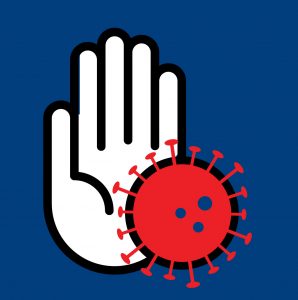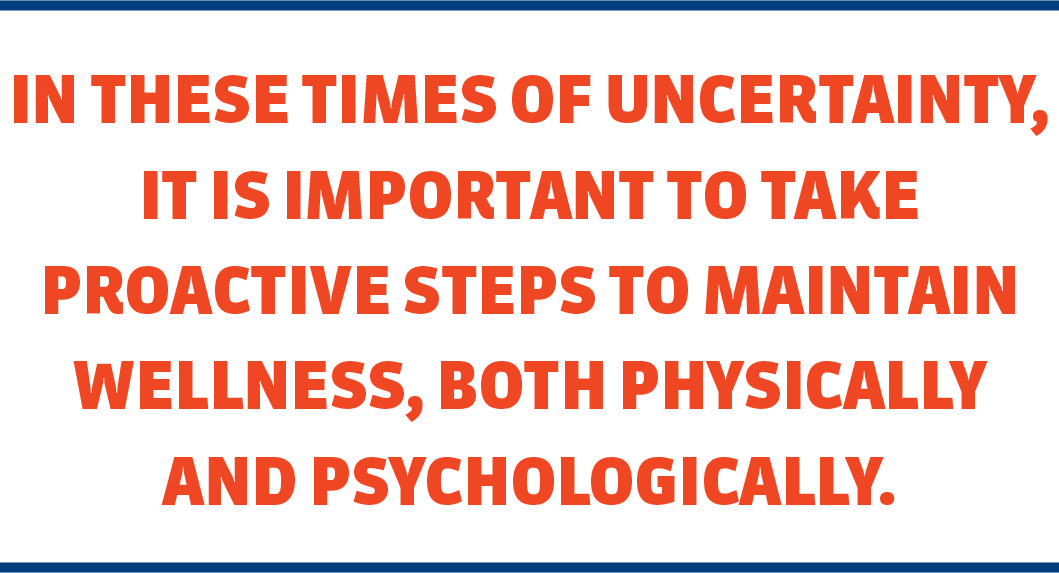
By Sherri Martin, M.A., LPCA
National Director of Wellness Services
On March 29, I was standing in my kitchen, elbows deep in whatever I was preparing for dinner. I had gotten used to the flow of being home after many weeks of traveling around the country to meetings with other FOP members. I had only been home from my most recent trip for about a week when COVID-19 stopped nearly everything. My phone alerted me that I had a text. It was from President Yoes: “Keep Darrin in your prayers, he’s in ICU with the coronavirus.”
“Oh no!” The words came out of my mouth with such emotion that my husband came from the next room to see if I was alright. I was OK, but my friend was in trouble.
 Even before he contracted COVID-19, I referred to Darrin Bourret as “my hero.” A veteran of the Chicago Police Department with over 30 years on the job, I had recently gotten to know Darrin when he became a member of the National Officer Wellness Committee. One of the most genuine and kind people I have ever met, Darrin quickly earned the respect of other members of the committee as he stepped right in and started using his training and experience in peer support to make important and useful contributions to the work of the committee. And at 53 years old, Darrin was still a working cop. Patrolling the streets of downtown Chicago by bicycle, he was out doing the job — the job that he loves, but that also made him a COVID-19 patient.
Even before he contracted COVID-19, I referred to Darrin Bourret as “my hero.” A veteran of the Chicago Police Department with over 30 years on the job, I had recently gotten to know Darrin when he became a member of the National Officer Wellness Committee. One of the most genuine and kind people I have ever met, Darrin quickly earned the respect of other members of the committee as he stepped right in and started using his training and experience in peer support to make important and useful contributions to the work of the committee. And at 53 years old, Darrin was still a working cop. Patrolling the streets of downtown Chicago by bicycle, he was out doing the job — the job that he loves, but that also made him a COVID-19 patient.
Now out of ICU and back at home recovering, Darrin is able to talk about how frightening it was for him to fight for his life and health, even after years working on the streets of one of the toughest cities in our nation. I, too, was scared for Darrin because of the uncertainty about who’s susceptible and who recovers from the virus. I knew Darrin was in good shape due to being active and taking care of his physical health, but healthy and active people seemed to be getting sick and dying also.
There are still many uncertainties for Darrin. Are my lungs damaged? Did it affect any other organs? As these questions remain for Darrin, most of us have been touched by the uncertainty presented by the virus and the changing world as we navigate the pandemic.
We have heard from many members about the various effects that working through these times has had on them and the way they do their jobs. Like other times of uncertainty in our profession, there has been a heightened awareness of the fragility of life. In a way, law enforcement work during the pandemic has borne some similarities to being a law enforcement officer during unsettling times of increased ambush killings of officers. Characterized by a heightened sense and awareness of danger, this need to be constantly “on guard” takes a toll even on those officers who are able to remain free of the virus.
Then there are other worries. The patrol officer heads out for his shift, unsure of whether he will become one of the officers spat upon while trying to effect a lawful arrest of a suspect who claims to be infected with COVID-19. The shift sergeant who supervised the death scene of someone who had symptoms of COVID-19 before their unexpected passing worries that she may have contaminated her boots or uniform while responding to the scene, so she strips in the garage before going in the house where her children are sleeping. Even with appropriate protective gear, there are so many uncertainties about how the virus travels that first responders must be concerned that they may be at greater risk, which unfortunately may also place additional stress on their families.
 Research tells us that mental health is closely tied to physical health. Specifically, those who enjoy strong social connections and maintain a degree of mental wellness live longer lives. In these times of uncertainty and in the face of a multitude of changes in our work and home lives, it is important to take proactive steps to maintain wellness, both physically and psychologically. Studies of the habits of people who are resilient in times of stress and adversity tell us that these certain habits are key:
Research tells us that mental health is closely tied to physical health. Specifically, those who enjoy strong social connections and maintain a degree of mental wellness live longer lives. In these times of uncertainty and in the face of a multitude of changes in our work and home lives, it is important to take proactive steps to maintain wellness, both physically and psychologically. Studies of the habits of people who are resilient in times of stress and adversity tell us that these certain habits are key:
- Perspective: People view life’s obstacles as challenges to maintain and build skills and reject viewing themselves as victims. They maintain a realistic understanding of what is within their realm of control and act positively within their capabilities.
- Perseverance: Resilient people are action-oriented. They simply do not wait around worrying about what may come. They move forward, focusing on what they can do to control their circumstances. They look for and apply solutions that will increase their control over their circumstances.
- Emotional consciousness: Resilient people are aware of their emotions and are not fearful of expressing them appropriately. Although, as law enforcement officers, we often must be the face of calm, it is normal to be uneasy and sad during this time. Being able to use this shared human experience of emotion can actually build social connectedness.
- Social support: Resilient people understand the value of close personal relationships with people who understand and care for them, and they work to nurture these relationships. This has been especially challenging for some during this period of social distancing. However, resilience sometimes demands creativity, and we have seen many creative ways that friends have connected during these past months.
As restrictions slowly begin to relax around the world, we should all take care to monitor our wellness. Research tells us that the negative effects of traumatic or life-threatening experiences sometimes creep up on us weeks, months or even years after the actual event. Be mindful that feeling uneasy about social contact as our world starts to return to some normalcy may seem unreasonable, but it isn’t. If you find yourself slipping into sadness due to the changes this pandemic has caused in our world, you are not alone. Use those common experiences to broaden and build your skills. Talk with others about your experiences and support others through them. Together, we will always remain #FOPStrong!





One thought on “Staying Resilient During COVID-19”
Good Luck and keep your spirits up.